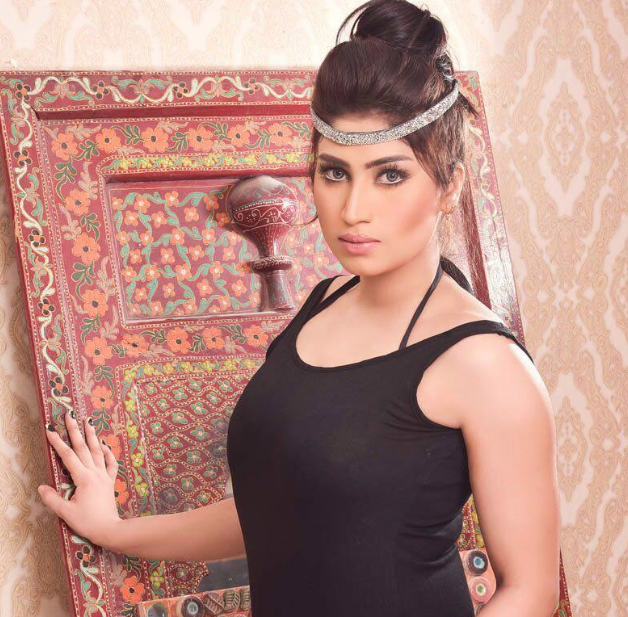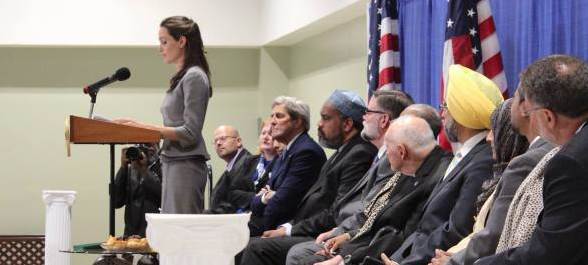The murder of provocative and seductive Pakistani social media star Qandeel Baloch, killed by her brother in an “honor killing,” is tragic, but not surprising as it took place in a country that frowns upon Muslim women physically exposing themselves.

But when reflecting more about her life and popularity on social media, a pretty clear thought emerges: the criticism Qandeel faced most often came from women (and sometimes the ultra conservative religious men).
In a survey of interviews Qandeel gave, she appears to be interviewed by women, and appearing as a guest along side other women, or by a mufti wearing his head topee, glasses and a beard speaking about Islam. More often than not, though, the muftis tend to be relatively calm and respectful. But the women almost always really went after her, harshly.
In this interview Qandeel gave in March of this year, she was viciously attacked by two women with no clear direction as to the logic of their criticism of Qandeel. The host of the show opens with judgements made about Qandeel’s actions (referring specifically to her provocative video messages she posts online), and it was clear that the other female guest was there to essentially support these angry critiques of Qandeel. The two women towards Qandeel sounded, well, catty. This interview was just part of a broader trend, whereby most harsh criticism of Qandeel came from women.
But there is a lesson that can be learned here, as it could have when a few weeks ago, Angelina Jolie spoke at a mosque about the Syrian refugee crisis. What resulted were many posts and articles that then condemned Muslim men for preventing women from having greater access to these types of panels and giving the same respect and platform to Muslim women as a non-Muslim white woman. And yet, nowhere was the conversation turned toward the pressures that Muslim women face by other Muslim women. Maybe, perhaps, it’s not always the men who make women voiceless in our societies but the women too from within these communities.

I live in a small town, but have several active Muslim communities nearby. A while ago, an attractive, articulate, well dressed and accomplished Muslim woman visited our community (she was related to another community member) with an interesting experience working in Africa. She often speaks at other panels around the globe, so we invited her to speak at the mosque’s women’s committee. Her talk, as we expected, was inspiring and we felt it important to have her speak in front of the entire community. We wrote up the request and the all male board approved of it. But, as we started to plan the event, many Muslim women started to protest. “Will she wear a longer skirt and hijab when she speaks?” “No sister should speak in front of other men!” “No sister, we must guard ourselves as Muslim women and not do things to attract the Muslim men.” And so the criticism started. Was the concern that this woman was doing something they couldn’t, wouldn’t or didn’t do? Or that maybe other men may take pride in her success, or even, gasp, find her attractive, accomplished or more? Were these women…threatened?!
Then it occurred to me. How many of us, women, in our own communities, could speak up and be part of panels and be actively engaged in community discussions and yet are prevented from doing so because of protests that come from other Muslim women who feel we should not do things to “attract” other men?
Yes, no doubt, misogyny exists globally in Muslim communities. I mean, for God’s sake, Qandeel’s own brother murdered her to protect his family’s “honor” (but praise for her father for turning his own son in…). But women could have been less catty toward her, and not always demean her. It appears their criticism was simply because she’s an attractive, sexy, bold, confident woman who attracts many men and has the guts to do something they may not be able to. Women like her who push bounds should be protected regardless of other women’s own approval of her actions. Similarly, micro level mosque communities, and the women within them, could also stop with the cattiness, preventing their own women from getting up on stage, regardless of what they wear, how attractive they are, or how confident and smart they sound.
In all honestly, I sometimes believe that the progress of Muslim women is slowed down by our own Muslim women and quite frankly needs to stop.





